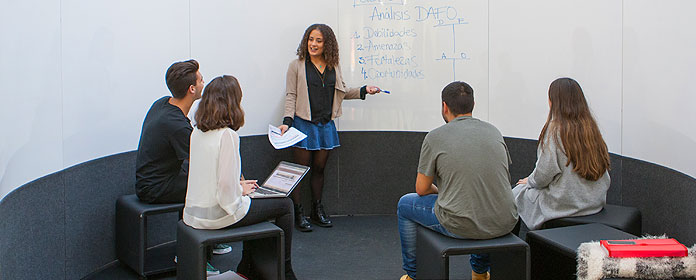Breaking down boundaries between subjects and disciplines, objective of integrated learning promoted by the University
With the student as the protagonist, this new teaching methodology aims to unite theory and practice, and bring the student closer to the professional reality.

Give a new format to the subjects and teaching plans to study a case of Law from its different branches or, for example, promote project-based teaching in the degree in Design. Unite theory and practice in Environmental Science studies with a program that includes 120 days of field work in places such as Wales, California, Ecuador or Costa Rica. Even encouraging teamwork among future professionals in Medicine, Nursing and Pharmacy, with three shared subjects.
These are some of the objectives of the new Blended Learning initiatives promoted by the University of Navarra within its Horizon 2020 Project. One of the challenges of this project is to promote innovative teaching.
"The purpose of integrated learning is to cross the boundaries between subjects and disciplines, to unite theory and practice, academic and professional worlds, so that students are better prepared to enter the labor market and respond to social demands in a multidisciplinary and globalized world," says Guadalupe Pérez, from the Quality and Innovation Service of the academic center.
The University of Navarra presented 16 integrated learning projects at the I Forum of Teaching Innovation Initiatives, organized by the Quality and Innovation Service. All of them of different nature and scope, affecting a subject or complete degrees (in the case of the Degree in Design or the Degree in Management Assistance (ISSA School of Management Assistants) or master's degrees(Master's Degree in Curatorial Studies). "Thanks to integrated learning, the competencies acquired through different subjects are linked and applied to avoid compartmentalized knowledge," he explains.
The student, protagonist of his trainingStudents who create a formula 1 car, students who organize congresses or subjects in which the great classics are reinterpreted through theater, film or video games.
"The protagonist of learning is the learner. We are aware that today's young people are very different from those of a few years ago. The objective is to enhance their motivation and creativity, to give them a meaningful experience, bringing them closer to the real world," says Guadalupe Pérez.
